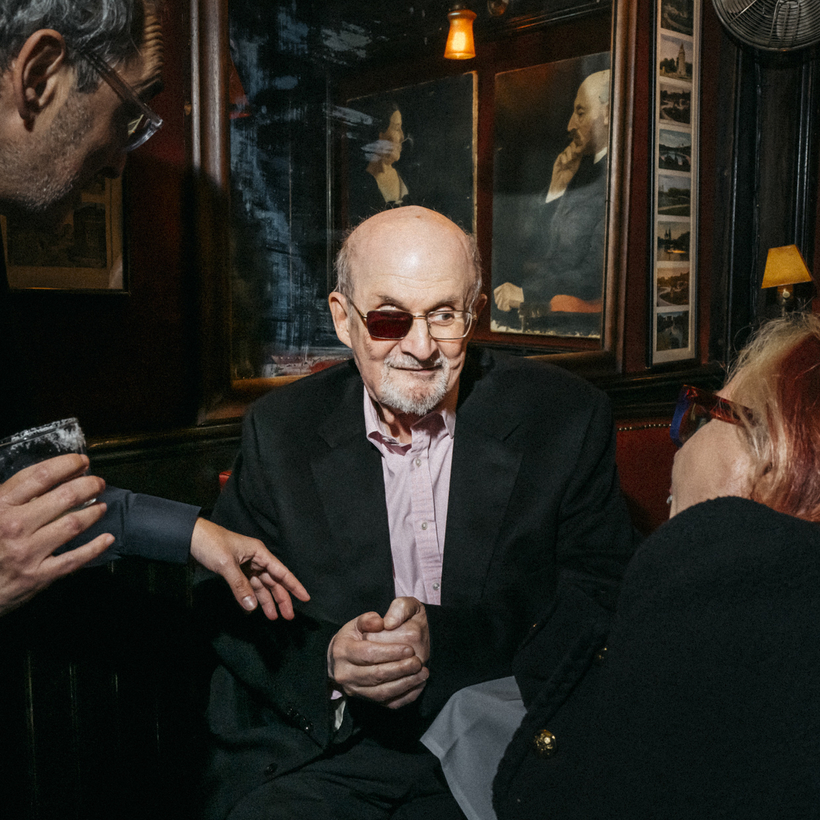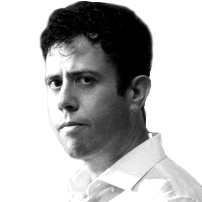The year 1989 was a pivotal one in the spread of freedom. Czechoslovakia’s Velvet Revolution, the electoral victory of the Solidarity trade union in Poland, the collapse of the Berlin Wall—all helped bring about the peaceful disintegration of the Soviet Union and augured a better, more tolerant world.
But 1989 was also a year in which the forces of illiberalism and religious obscurantism made ominous gains. The Chinese Communist Party brutally extinguished a pro-democracy movement in Tiananmen Square, and the supreme leader of Iran, Ayatollah Khomeini, issued a fatwa calling for the death of the Anglo-Indian author Salman Rushdie over his novel The Satanic Verses.
For most of the 1990s, while the Western world was enjoying historically low interest rates, a global peace dividend, and enviable political stability, Rushdie lived in hiding, shuttled from safe house to safe house, a harrowing experience he recounted in his 2012 memoir, Joseph Anton (a combination of the first names of two of his favorite authors, Joseph Conrad and Anton Chekhov, and the alias under which he lived). More harrowing still, Rushdie’s Japanese translator was stabbed to death, his Italian translator was seriously wounded, his Norwegian publisher was shot and seriously injured, and 37 participants at a literary festival attended by his Turkish translator were killed when their conference hotel was bombed.
But an ostensible liberalization of the Iranian regime during the latter part of the decade persuaded Rushdie to stop living underground, and in 2000 he moved to the United States. Shortly after arriving, Rushdie’s literary agent, Andrew Wylie, took him out to dinner at a restaurant on Long Island. An artist came to the table and asked, “Shouldn’t we all be afraid and leave the restaurant?” Rushdie “learned a lesson from this brief encounter. The only way I could stop looking, to others, like some sort of walking bomb,” he writes, “was to behave, frequently and in public, as if there was nothing to be frightened of.”
It was in such a state that Rushdie was savagely attacked on the morning of August 12, 2022—33 years after the fatwa against him was first issued—by a 24-year-old, knife-wielding, radical Islamist, who managed to stab him multiple times in his abdomen, neck, thigh, chest, and right eye before being subdued by members of the audience. When the terrible moment finally arrived, in an amphitheater on the grounds of the idyllic Chautauqua Institution, in western New York, Rushdie’s initial reaction was “So it’s you. Here you are.”
While the Western world was enjoying historically low interest rates, a global peace dividend, and enviable political stability, Rushdie lived in hiding, shuttled from safe house to safe house.
On the third day of his recovery, Rushdie had his “first coherent thought,” which he verbalized to his wife: “We need to document this. This is bigger than just me. It’s about a larger subject.” Knife: Meditations on an Attempted Murder is Rushdie’s effort to grapple with the attack, and to “answer violence with art.” Part memoir and part manifesto, this beautiful and humorous book is a signal contribution to the literature of freedom.
Rushdie refuses to name “My Assailant, my would-be Assassin, the Asinine man who made Assumptions about me, and with whom I had a near-lethal Assignation,” settling eventually on “the A.” Yet he is determined not just to understand “the A” but to empathize with him, and readers are at risk of empathizing with him, too.
In a riveting imagined dialogue between Rushdie and his attacker, the two go back and forth discussing religion, morality, family, the death penalty, terrorism, literature. “The A” presented here is not a demon but a human being with sincerely held beliefs, however monstrous. At a time when the literary community is afflicted by self-censorship, Rushdie should be commended for doing the unfathomably difficult work of trying to see the world from the perspective of the man who tried to kill him.

Despite his near-fatal ordeal, Rushdie is never self-pitying. Knife is leavened with the gallows humor its author has cultivated in the decades since, as he puts it, “the excrement hit the ventilation system.” Explaining one of his many medical procedures, he offers this advice: “If you can avoid having your eyelid sewn shut … avoid it. It really, really hurts.” There is a grim sort of irony in the fact that Rushdie’s late friend Christopher Hitchens wrote a memoir about his impending death, Mortality, and Rushdie has now written one about coming back to life.
Though Knife is largely free of recriminations, Rushdie rightly expresses his contempt for those who, when confronted with a violent threat to free expression, take the side of the murderous zealots. John le Carré, Hugh Trevor-Roper, Germaine Greer, Jimmy Carter, and others suggested that Rushdie had brought the fatwa upon himself. Nor has he forgotten the more than 200 writers who signed an open letter protesting the award that PEN bestowed upon the surviving staff of Charlie Hebdo in 2015. “As far as I know, not a single one of them has commented on the attack against me,” he notes.
At a time when the literary community is afflicted by self-censorship, Rushdie should be commended for doing the unfathomably difficult work of trying to see the world from the perspective of the man who tried to kill him.
Toward the end of the book, Rushdie shares the victim-impact statement he plans to read should he be called to testify at his assailant’s trial. “Perhaps,” he writes, addressing “the A,” “[you will] come to understand that you did something wrong. But you know what? I don’t care…. I don’t care about you, or the ideology that you claim to represent, and which you represent so poorly. I have my life, and my work, and there are people who love me. I care about those things.”
Here is a man who, for more than three decades, faced the prospect of being murdered at any moment, and came perilously close to being gored to death. Somehow, he has managed to come out the other side of this hellish experience without any visible trace of bitterness, and with lessons to teach us all. Rushdie is an exemplar of that admirable British quality roughly expressed as “getting on with it.”
When the ayatollah issued his fatwa, Rushdie faced a series of tests. One test was basic survival. But another, arguably more important test was how to respond. Would he stop writing, or retract what he had written? Would he retreat into the safety of obscurity? Rushdie did none of these things.
Instead, he became a model for grace under unimaginable pressure, choosing to use the platform perversely afforded him for good by speaking up constantly on behalf of intellectual freedom and other threatened writers. His message is simple: “If you are afraid of the consequences of what you say, then you are not free.”
James Kirchick is a Writer at Large at AIR MAIL, a senior fellow at the Foundation for Individual Rights and Expression, and the author of Secret City: The Hidden History of Gay Washington


